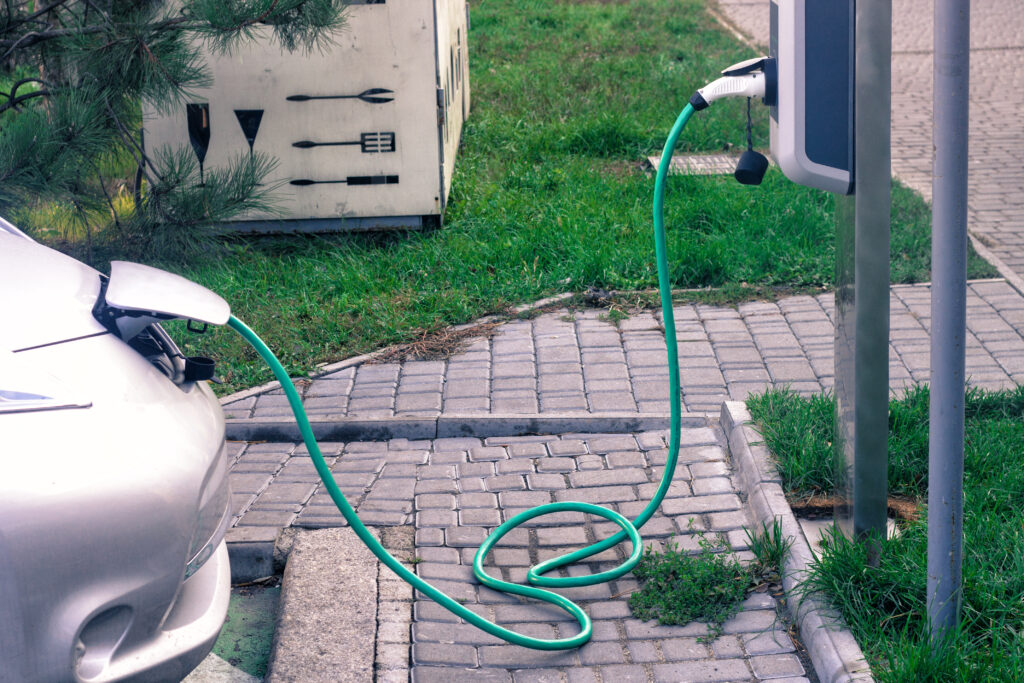Are you thinking of building a car charging station?
Electric vehicles are becoming more popular as climate concerns grow. Not only that, but governments are offering incentives to encourage their adoption, range increases are making them more practical for daily use, and faster charging is reducing the time it takes to refuel.
The proof is in the growing charging infrastructure. As of April 2024, there were over 168,300 charging outlets for plug-in electric vehicles in the US. This expansion has made EV ownership more convenient than ever, with 64% of Americans now living within just 2 miles of a charging station..
This growth isn’t just happening in urban centers. Rural areas and highway corridors are seeing increased investment in charging infrastructure, making long-distance EV travel more feasible.
The Federal Highway Administration’s National Electric Vehicle Infrastructure (NEVI) Formula Program plays a crucial role in this expansion, funding states to strategically deploy EV charging stations along designated Alternative Fuel Corridors.
As a result, investors are becoming increasingly interested in the EV charging sector. The market for EV charging stations is expected to grow significantly in the coming years, presenting lucrative opportunities for early movers.
Title Search for Car Charging Stations
A comprehensive title search is an essential first step if you’re considering building a car charging station. This process provides critical information about the property’s history and any potential legal barriers affecting your development plans.
Here’s what it can reveal and the challenges you might face:
- Ownership: This confirms the current owner(s) of the property. The ownership history may be complex depending on the land and its previous uses.
- Liens & Encumbrances: This section identifies outstanding debts or claims, such as mortgages or tax liens. A hidden lien can impact your ability to secure financing for the project, potentially stalling your development plans or forcing additional costs to settle the debt.
- Zoning Restrictions: Check if the land is zoned for commercial use and suitable for a charging station.
- Easements: Uncovers any utility or access rights affecting property use.
- Covenants & Restrictions: Reveals deed restrictions that could limit development.
Potential Legal Hurdles
Even if the property seems ideal on paper, other challenges exist. Zoning compliance is a common issue. A property might be zoned for commercial use but still require additional permits or approvals, particularly for car charging stations, which often have specific parking and electrical infrastructure requirements.
Environmental regulations are another potential hurdle. If the property is near a sensitive area, such as a waterway or a protected natural site, you’ll likely need environmental permits.
Similarly, historical preservation rules may apply if the land is in a district that limits new construction or alterations.
Lastly, utility infrastructure is crucial for a charging station. Ensuring the property has adequate electrical capacity might involve coordination with local utility providers, which can be time-consuming or costly.
For example, most EV stations require high-voltage connections and reliable access to the electrical grid, which may necessitate upgrades to the local infrastructure. This could sometimes mean installing new transformers, upgrading power lines, or securing permits to extend service to the property.
With adequate power, the station can simultaneously meet the demands of multiple vehicles charging.
If the property has existing easements, disputes over their scope or use could arise, further delaying your project.

Emerging Trends in EV Charging Station Development
As you consider developing a car charging station, it’s essential to be aware of emerging trends that could affect your project:
- Fast Charging Technology: The demand for ultra-fast charging stations is growing. These stations can charge EVs to 80% capacity in as little as 15-20 minutes, making them particularly attractive for highway locations.
- Grid Integration: Smart charging stations communicating with the power grid are becoming more common. These stations can adjust charging rates based on grid demand, potentially qualifying for special utility rates or incentives.
- Renewable Energy Integration: Many charging station developers are incorporating on-site renewable energy generation, such as solar panels, to reduce operational costs and improve sustainability.
- Multi-Use Developments: There’s a growing trend towards integrating charging stations with other amenities like cafes, shops, or rest areas to create more attractive stopping points for EV drivers.
Partner with Pippin for Expert Title Searches on Car Charging Stations
At Pippin, we’re experts in green projects and understand the legal hurdles of developing car charging stations.
Our specialised title search services identify potential issues, such as liens, zoning restrictions, and easements, that could affect your project.
Our team can:
- Conduct comprehensive title searches tailored to EV charging station development.
- Identify and explain potential legal issues specific to your property.
- Help guide you in navigating zoning and permitting processes.
- Offer insights into local utility regulations and infrastructure requirements.
- Assist in due diligence for multi-property charging network developments.
By partnering with Pippin, you’ll gain the confidence to move forward with your car charging station project, knowing you clearly understand the property’s legal status and potential challenges.
Contact us today to streamline your land acquisition with confidence!


